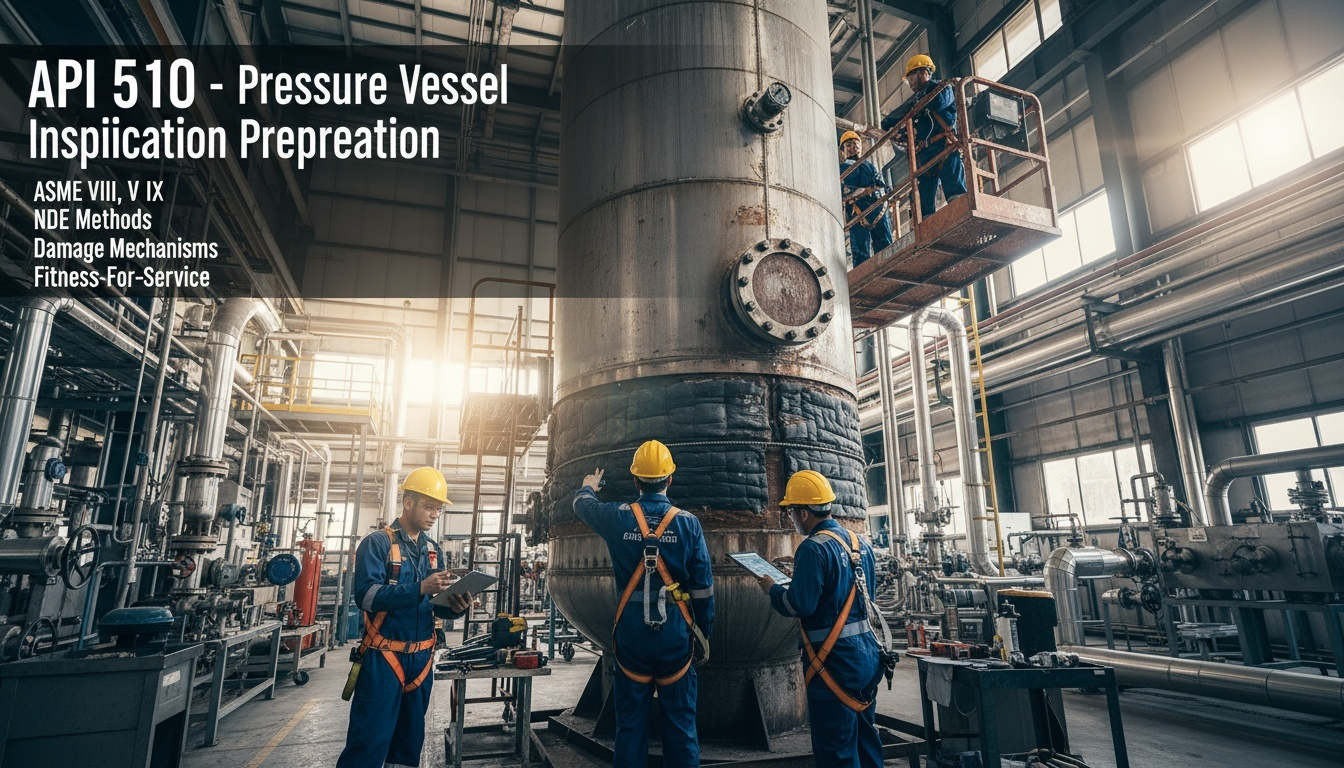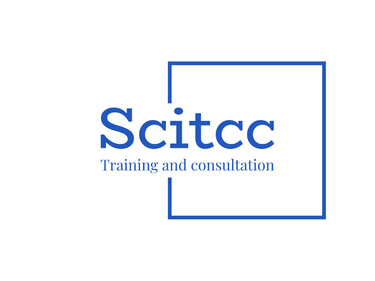
API 510 - Pressure Vessel Inspector Certification Preparation
$1200.00
API 510 - Pressure Vessel Inspector Certification Preparation
Course Overview
Program Title: API 510 Certified Pressure Vessel Inspector Preparation Course
Duration: 5 Days (40 Contact Hours)
Schedule: November 10-14, 2025 | January 12-16, 2026
Timing: Full-Day (9:00 AM - 5:00 PM)
Location: Riyadh, Jeddah, Dammam (In-Person) | Online Live Sessions
Course Code: STC-API510-2025-11
Investment: 4,200 SAR (Early Bird: 3,360 SAR)
Language: English (Arabic support materials)
Course Description:
Comprehensive preparation for API 510 Certified Pressure Vessel Inspector examination. Covers in-service inspection, repair, alteration, and rerating of pressure vessels and heat exchangers in refineries, petrochemical plants, and power generation facilities across the GCC.
The course provides deep understanding of ASME Section VIII Division 1 & 2, API 510 code requirements, vessel design principles, fabrication standards, damage mechanisms, NDE methods, thickness calculations, and fitness-for-service evaluation specific to Saudi Aramco, SABIC, and regional operations.
Target Audience:
Pressure vessel inspectors and inspection engineers
QA/QC engineers in refineries and chemical plants
Mechanical engineers involved in static equipment integrity
Maintenance supervisors and planners
NDT technicians advancing to inspector roles
Aramco, SABIC, ADNOC, QatarEnergy personnel
Prerequisites:
Minimum 5 years field experience in pressure vessel inspection, or
3 years' experience + engineering degree
Knowledge of pressure vessel design and fabrication
Familiarity with welding and NDE methods
Course Curriculum Highlights
Day 1: API 510 Code & ASME Section VIII Fundamentals
API 510 scope, applicability, inspector responsibilities
ASME Boiler & Pressure Vessel Code Section VIII Div 1 & 2
Pressure vessel types: Vertical, horizontal, spherical
Components: Shells, heads, nozzles, flanges, supports
Materials: Carbon steel, stainless steel, alloy steel specifications
Design pressure and temperature considerations
Day 2: Fabrication, Welding & Damage Mechanisms
Fabrication requirements per ASME Section VIII
Welding per ASME Section IX: WPS, PQR, welder qualification
Weld joint types and radiographic examination requirements
Damage mechanisms: Corrosion (internal/external), cracking, creep, fatigue
High-temperature hydrogen attack (HTHA) in hydrocrackers
Caustic embrittlement, stress corrosion cracking
Brittle fracture and impact testing
Day 3: Inspection Planning & NDE Methods
In-service inspection program development
Risk-Based Inspection (RBI) per API 580/581
NDE methods: UT, RT, MT, PT, AET, PAUT, TOFD
External inspection (online) vs. internal inspection (shutdown)
Thickness measurement techniques and data management
CML selection and inspection frequency determination
Day 4: Thickness Calculations, Repairs & Alterations
Minimum thickness calculations per ASME Section VIII Div 1:
Cylindrical shells, spherical shells, formed heads
t = (P × R) / (S × E - 0.6P) + CA
MAWP calculations and rerating
Remaining life assessment and retirement criteria
Repair procedures: Welded repairs, composite repairs
Alteration requirements and engineering analysis
Pressure testing: Hydrostatic and pneumatic
Day 5: Quality Assurance, Documentation & Exam Prep
Inspection report writing and documentation
Quality control and ASME QMS requirements
Saudi Aramco vessel inspection procedures (SAEP-402)
API 510 exam format and strategy (110 questions, 3 hours, closed-book)
50-question mock exam with detailed review
Exam registration process and study plan
Learning Outcomes
Participants will be able to:
Interpret ASME Section VIII design and fabrication requirements
Develop comprehensive inspection programs for pressure vessels
Perform thickness measurements and calculate remaining life
Evaluate damage mechanisms and fitness-for-service
Approve repairs and alterations per API 510
Pass the API 510 certification exam (70%+ score)
Function as authorized pressure vessel inspector in GCC facilities
Course Materials
API 510 Pressure Vessel Inspection Code (10th Edition)
ASME Section VIII Division 1 (excerpts and key sections)
Course workbook (350+ pages)
600+ practice questions
Calculation worksheets and formula reference
Case studies from GCC refineries and chemical plants
Instructor: Eng. Abdullah Al-Qahtani, API 510/570/653, 22 years' experience with Aramco and SABIC
Registration: scitcc.com/api-510 | +971566922928


